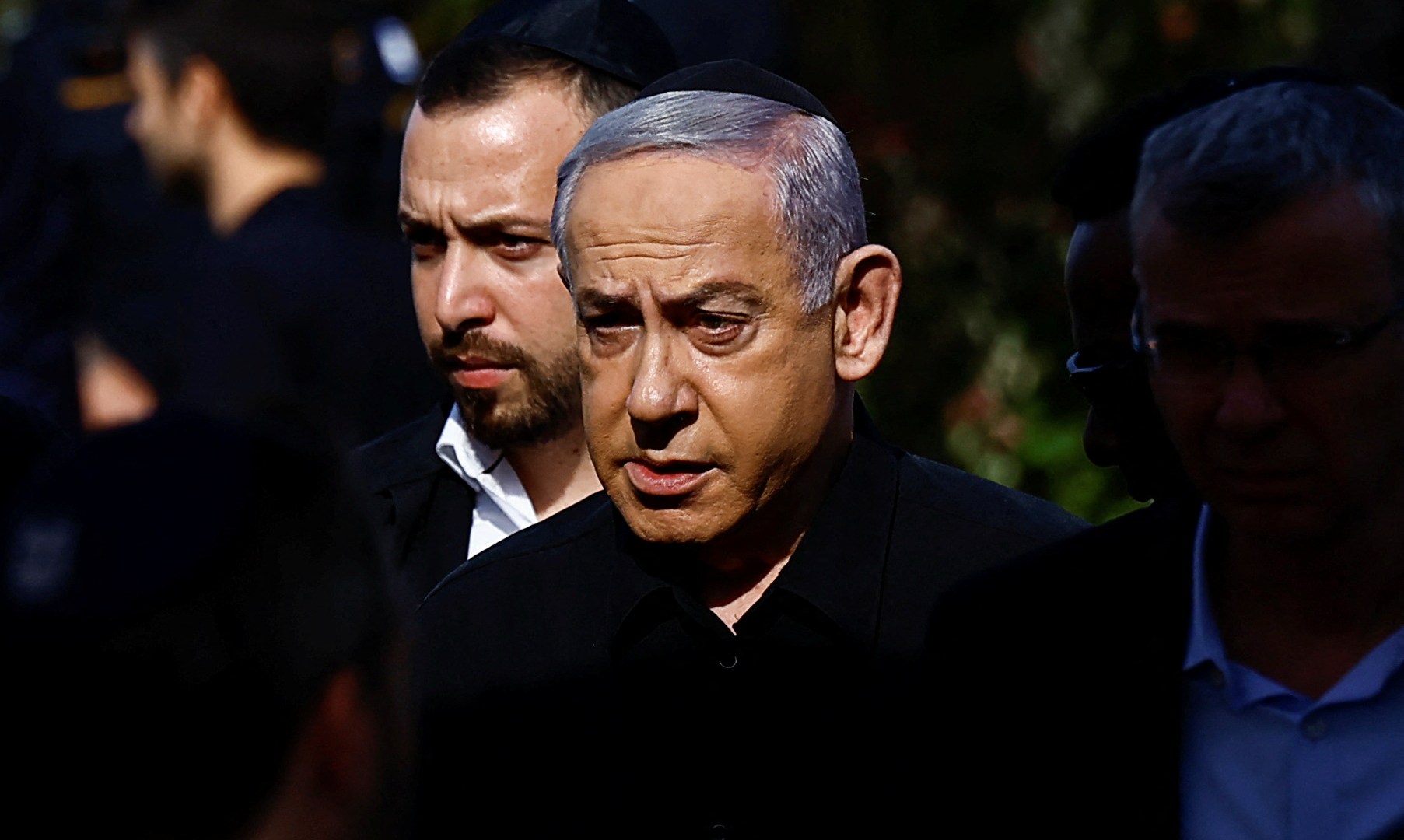Netanyahu informed the families of the detainees that he would approve a deal that would not harm Israel’s security, even if it led to the collapse of his government (Reuters)
Israeli Channel 12 revealed details of a possible exchange deal between the Islamic Resistance Movement (Hamas) and Israel, and Prime Minister Benjamin Netanyahu confirmed that the anticipated deal would not be at any price, and said that he had red lines.
The channel reported that Mossad chief David Barnea revealed to the Israeli War Council a “document of principles” for the deal, which includes in the first phase the release of 35 Israeli detainees in the Gaza Strip, including women, the wounded, and the elderly, in exchange for a truce for 35 days.
She added, "It is possible after that to extend the calm for an additional week, in order to conduct negotiations on the possibility of completing the second phase of the deal, which includes the release of the youth, and all those whom Hamas describes as soldiers."
The channel considered that "the essence of the disagreement on the Israeli side is not necessarily the number of security prisoners (Palestinian prisoners) that Israel will be forced to release from prisons, but rather their quality." She pointed out that a deal that includes the release of a large number of Palestinian prisoners who were convicted by Israel of involvement in attacks that resulted in the killing of Israelis "will be difficult for the public and politicians to digest."
According to the channel, the ball is now in Hamas’ court, to which the mediators conveyed the main lines of the deal, and is awaiting its response.
On Tuesday, the head of the Hamas Political Bureau, Ismail Haniyeh, announced that his movement had received the deal proposal that was circulated within the framework of efforts to stop the Israeli war on the Gaza Strip, and that it was studying it.
3 prisoners
For its part, Yedioth Ahronoth newspaper said that Hamas "insists that the next deal include 3 known Palestinian prisoners, only one of whom is a member of the movement."
The newspaper pointed out that the list that Hamas is expected to present includes “big names capable of changing the face of the Palestinian Authority, led by Fatah leader Marwan Barghouti, who is considered in the latest opinion poll conducted in the West Bank to be the preferred candidate to head the Authority after Abu Mazen (President). Palestinian Mahmoud Abbas).
From right: Ahmed Saadat, Marwan Barghouthi, and Abdullah Barghouthi (French)
The newspaper continued, "The second name that Hamas insists on is Ahmed Saadat, Secretary-General of the Popular Front." It noted that Israel refused to release Saadat as part of the Shalit deal in 2011, and described him as, like Barghouti, "an important popular figure in Palestinian society."
As for the third prisoner, Yedioth Ahronoth said that he is Abdullah Barghouti, a member of Hamas, and one of the leaders of the movement’s military wing in the West Bank, who is currently serving a 67-life sentence, which is an “unprecedented” sentence in Israel, according to the newspaper, which confirmed that Tel Aviv It also refused to release Barghouti in the Shalit deal.
Netanyahu's position
On the other hand, Israeli Prime Minister Benjamin Netanyahu said that efforts are continuing to reach a new prisoner exchange deal, but he stressed that it will not be done at any price. He added in a video clip he published yesterday, Wednesday, that he has red lines, including not stopping the war and not withdrawing army forces. From the Gaza Strip and not releasing thousands of Palestinian prisoners.
Netanyahu continued, "We are working to release our kidnappers, eliminate Hamas, and ensure that Gaza no longer poses a threat. We are working to achieve the three goals together, and we will not abandon any of them."
Israeli Channel 12 said that Netanyahu informed the families of detainees in Gaza that he would approve a deal that would not harm Israel’s security, even if it led to the collapse of his government.
Commenting on Netanyahu's position, an Israeli official familiar with the progress of the negotiations expressed his fears that the Prime Minister would push Hamas to "blow up the deal." The Haaretz newspaper quoted the unnamed official as saying that there are fears “that the aim of the extremism in Netanyahu’s statements in recent days is to encourage Hamas to harden its positions and undermine the deal.”
He added, "Such a step may allow Israel to continue fighting while holding Hamas responsible for the failure of the talks."
Israel estimates that there are about 136 Israeli prisoners in Gaza, while it holds no less than 8,800 Palestinians in its prisons, according to official sources from both sides.
Source: Al Jazeera + agencies

